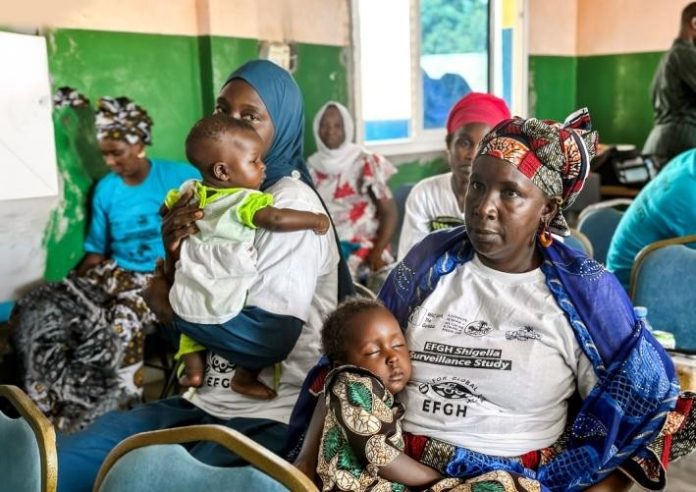A press release from the Medical Research Council Unit-The Gambia @ London School of Tropical Medicine and Research revealed high rates of ‘Shigella’ infections and antimicrobial resistance among infants in the Upper River Region of The Gambia.
According to the dispatch, the disease, which is found to be rampant in infants, is said to be a major contributor to childhood illnesses and deaths in low-resource settings, and its findings have raised concern about current treatment and control efforts, due to its resistance to drugs available for its treatment.
Below is the full press release as sent to media houses across the country.
‘‘The ‘Shigella’ Surveillance Study under the Enterics for Global Health (EFGH) has revealed high rates of ‘Shigella’ infections and antimicrobial resistance in the Upper River Region of The Gambia. Launched in 2022, the study investigated the burden of Shigella-related diarrhea, a major contributor to childhood illnesses and death in low-resource settings. Its findings raise concerns about current treatment and control efforts. The study was conducted in Basse and led by MRC-G researchers in collaboration with the Ministry of Health, community health centers, district hospitals, and local authorities, who played an active role, helping gather data from patients, caregivers, and healthcare workers. Findings shared during a dissemination meeting held on April 15, 2025, revealed a high prevalence of Shigella infections among children aged 6 to 35 months, along with increasing resistance to commonly used antibiotics. These results emphasise an urgent need to revise treatment guidelines, invest in diagnostics, and fast-track vaccine development. The findings carry far-reaching implications for public health, both locally and globally. In The Gambia, they will support the Ministry of Health in refining diarrheal disease management strategies. Globally, they add to the growing body of evidence on antimicrobial resistance in vulnerable populations. At the event, Samba Bah, Deputy Director of the Regional Health Directorate, reaffirmed the Ministry’s commitment to supporting the MRCG at LSHTM’s work. “This study reinforces the value of strong collaboration between MRCG and the Ministry of Health. The findings provide critical data that will guide our response strategies. With this evidence in hand, the Regional Health Directorate reaffirms its commitment to supporting MRCG initiatives aimed at improving public health in the Upper River Region. Together, we can shape informed interventions and improve health outcomes for our communities. These results highlight the urgent need to address antibiotic resistance and improve sanitation and hygiene,” Dr. Jahangir Hossain, Principal Investigator of the study, said. “We will be engaging with the Ministry of Health, WHO, GAVI, and other key stakeholders to discuss prioritising the development and introduction of a Shigella vaccine in The Gambia. We are deeply grateful to the communities, participants, and health workers who made this research possible.” Moving forward, the EFGH team will continue engaging local communities through village-level meetings, ensuring that participants, elders, and local leaders are informed about the study findings and their implications, and are equipped to support prevention and mitigation efforts.’’



















